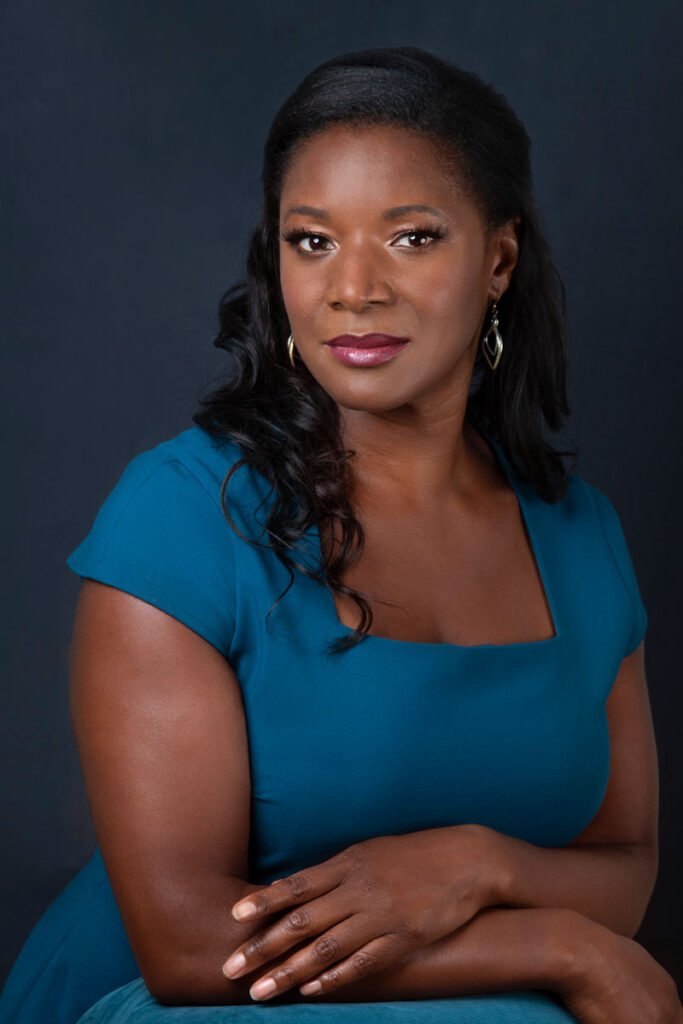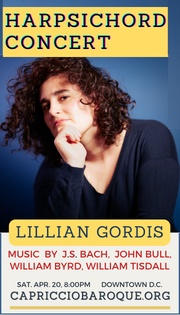Llewellyn provides sterling advocacy for Coleridge-Taylor songs in Vocal Arts recital

Soprano Elizabeth Llewellyn performed a recital for Vocal Arts DC Monday night at the Kennedy Center Terrace Theater. Photo: C. Frances Marshall
The series of song recitals presented by Vocal Arts DC regularly features noteworthy local debuts. Lovers of this most intimate type of performance were rewarded again by the final recital of the organization’s season, featuring soprano Elizabeth Llewellyn and pianist Simon Lepper. For the singer’s U.S. debut, the English duo performed a rich, diverting program of songs Monday evening in the Kennedy Center Terrace Theater.
Their program centered on the songs of Samuel Coleridge-Taylor, also the focus of a recording they released in 2021 on Orchid Classics. Although the Afro-British composer died at the age of 37, of pneumonia, he left many songs, among other compositions. Llewellyn’s opening set consisted of three selections from Southern Love Songs, which featured her sweetly innocent tone and eminently clear diction in English.
Llewellyn’s lyric soprano voice suited these brief, eloquently paced songs, a ribbon of rarefied tone with a pleasing, pitch-perfect vibrato. High notes rang with bell-like clarity. Llewellyn held attention dramatically in the folkish, expansive narration of “A King There Lived in Thule,” from the composer’s incidental music to Goethe’s Faust.
The singer’s low range came into play more in a set of three Brahms songs, especially in the shuddering emotion of “Immer leise wird mein Schlummer,” about a woman longing to see her beloved again. Lepper’s accompaniment, scaled perfectly to his partner, took a stormy turn in the explosive introduction to “Auf dem Kirchhofe,” set in a cemetery. Llewellyn’s interpretation, by contrast, became poignantly still in the moving final stanza.
Text and music came together gorgeously in two items from A Sheaf of Songs from Leinster by Charles Villiers Stanford, who was Coleridge-Taylor’s principal teacher at the Royal College of Music. The Irish-themed poetry of Winifred Mary Letts spotlighted the weather in “A Soft Day,” with exquisitely subtle diction from Llewellyn on the repeated word “drips.” Llewellyn, born to Jamaican parents, gave the quick-paced “The Bold, Unbiddable Child” the air of a scolding Jamaican mother, who will give you something to cry about if you don’t behave.
Italian art songs, especially by opera composers, can often disappoint, but Llewellyn made a strong case for a set by Puccini. Two of these provided a stealthy way to incorporate opera arias into the program. In “Morire?” (reworked into La Rondine), Llewellyn ventured into the top part of her range, with a fine extension up to high B. Likewise, Puccini recycled the charming “Sole e amore” as music for Mimi in La Bohème, a role Llewellyn has sung to acclaim. More immaculate top notes crowned the end of the first half in the last three songs of the set.
Four selections from Coleridge-Taylor’s dark-hued Six Sorrow Songs, to melancholy poetry by Christina Rossetti, struck a more dramatic tone to start the second half. Lepper’s delicate playing and Llewellyn’s sensitive shading of the composer’s melodies made a strong case for the revival of this neglected composer’s music.
Llewellyn was no less accomplished in bringing out the rarefied side of songs by Richard Strauss, combining gorgeous declamation, lively musicality, and crystal high notes in “Einerlei” and “Nachtgang,” the latter with a sly tribute to Wagner’s “Liebestod” in the piano’s postlude. Strauss’s frequent reaches to high G sharp and even A sharp in “Ständchen” stood out for the agile ease with which Llewellyn’s voice soared into the heights.
Somewhat oddly the only other comic note in the program came in the set of three songs by Giuseppe Verdi at the end. With consummate vocal control, Llewellyn flirted and joked amiably in the buffo song “Stornello,” countering with the dramatic monologue of “Perduta ho la pace,” sort of like a little operatic scena. Only in the final song, “La Zingara,” did a little vocal pressure or uncertainty seem to drag Llewellyn’s voice down just a bit.
It was a delight for the musicians to return to more songs by Samuel Coleridge-Taylor for their two encores, both heard on their 2021 album: “Thou Hast Bewitched Me, Beloved” from Songs of Sun and Shade, set to a poem by poet Radclyffe Hall, followed by “Life and Death,” on a poem by the ghost story writer Jessie Adelaide Middleton. The superb quality of Coleridge-Taylor’s songs demands that more singers bring them to light.
In the 2023-2024 season, Vocal Arts will present song recitals by countertenor Anthony Roth Costanzo, tenor Jonah Hoskins, mezzo-soprano Raehann Bryce-Davis, tenor Russell Thomas, mezzo-soprano Daniela Mack, and soprano Erin Morley. vocalartsdc.org







